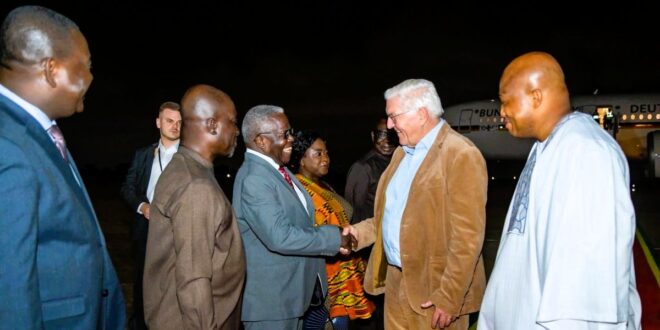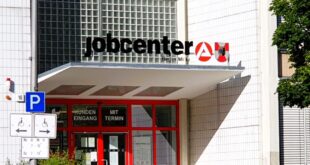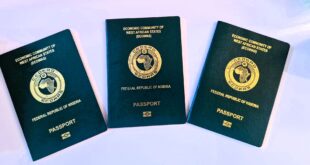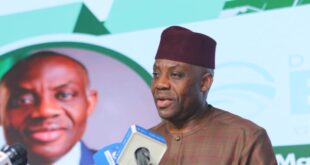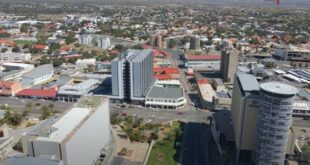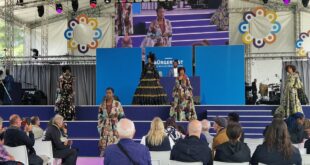German President Frank-Walter Steinmeier has embarked on a week-long visit to Africa aimed at strengthening Germany’s partnerships across the continent. His trip began in Cairo, Egypt, where he attended the grand opening of the new Grand Egyptian Museum, before continuing to Ghana and Angola to advance political, economic and cultural cooperation.
![]()
German President Frank‑Walter Steinmeier’s agenda began with the opening of the Grand Egyptian Museum in Cairo, on 1 November before moving on to Ghana (3-4 November) and Angola (5-7 November). In Accra he met with Ghanaian President John Dramani Mahama and a broad range of stakeholders—start-ups, youth representatives and civil society—to discuss future cooperation in innovation, vocational training and youth employment. In Kumasi he also met the Ashanti monarch, Otumfuo Osei Tutu II, underscoring cultural and regional dimensions of the partnership.
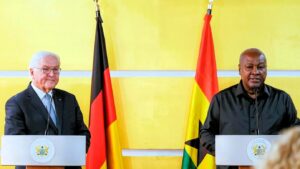
![]()
A key announcement during the Ghana stop-over was Germany’s pledge of €65 million (subject to parliamentary approval) to support development cooperation with Ghana. This funding will focus on youth job creation, vocational training, renewable energy and the digital economy. Moreover, the two leaders signed a Joint Declaration of Intent to establish regular high-level consultations between Ghana’s Foreign Affairs Ministry and Germany’s Federal Foreign Office. The discussions also opened a pathway towards a labour-mobility agreement designed to facilitate structured employment of Ghanaian professionals in Germany.
These developments take place against a broader backdrop of Germany looking to reposition its Africa policy in a multipolar world. Analysts argue that Berlin sees countries like Ghana as strategic partners—not simply aid recipients—but hubs of trade, innovation and Africa-Europe integration. German-African business networks such as the Afrika‑Verein der deutschen Wirtschaft are stepping up, and schemes like “African Skills 4 Germany” are training Ghanaian youth for dual vocational programmes in Germany and at home.
In Angola, Germany will engage for the first time with President João Lourenço, business leaders and young Angolans, and tour German-supported infrastructure along the Lobito Corridor—a major transport-and-trade link seen as a flagship of regional integration and sustainable commerce in southern Africa. Germany’s interest in the corridor aligns with Africa’s growing role in supplying raw materials essential for Europe’s green economy.
The significance of these engagements is two-fold: they reflect Germany’s evolving view of Africa as a partner in innovation, trade and capacity-building; and they offer fresh opportunities for African entrepreneurs, diasporas and young professionals to engage in new pathways of exchange, employment and joint enterprise. In short: the era of one-way development assistance is being joined by one of mutual investment and shared benefit.
Felix Dappah
 THE AFRICAN COURIER. Reporting Africa and its Diaspora! The African Courier is an international magazine published in Germany to report on Africa and the Diaspora African experience. The first issue of the bimonthly magazine appeared on the newsstands on 15 February 1998. The African Courier is a communication forum for European-African political, economic and cultural exchanges, and a voice for Africa in Europe.
THE AFRICAN COURIER. Reporting Africa and its Diaspora! The African Courier is an international magazine published in Germany to report on Africa and the Diaspora African experience. The first issue of the bimonthly magazine appeared on the newsstands on 15 February 1998. The African Courier is a communication forum for European-African political, economic and cultural exchanges, and a voice for Africa in Europe.

